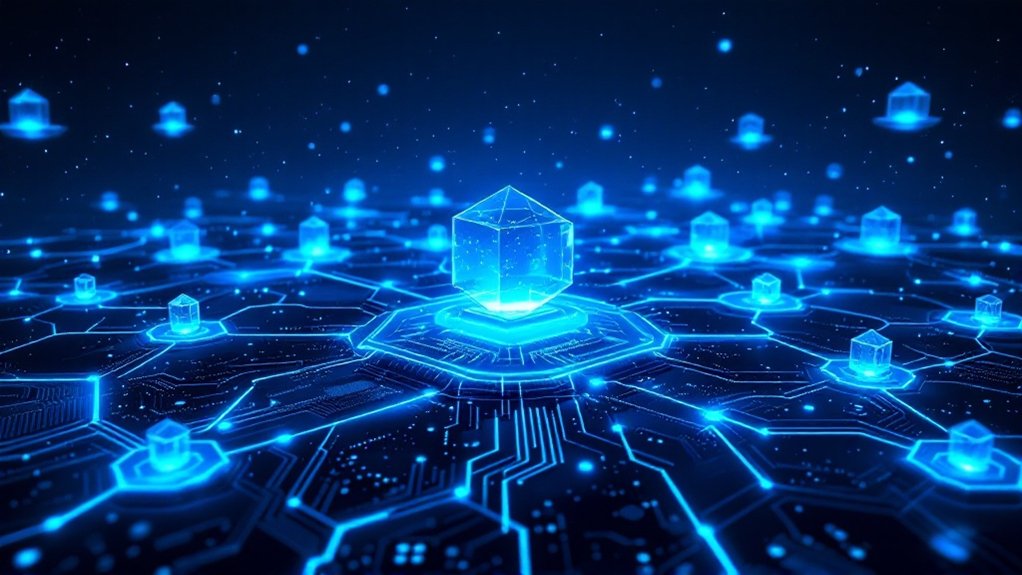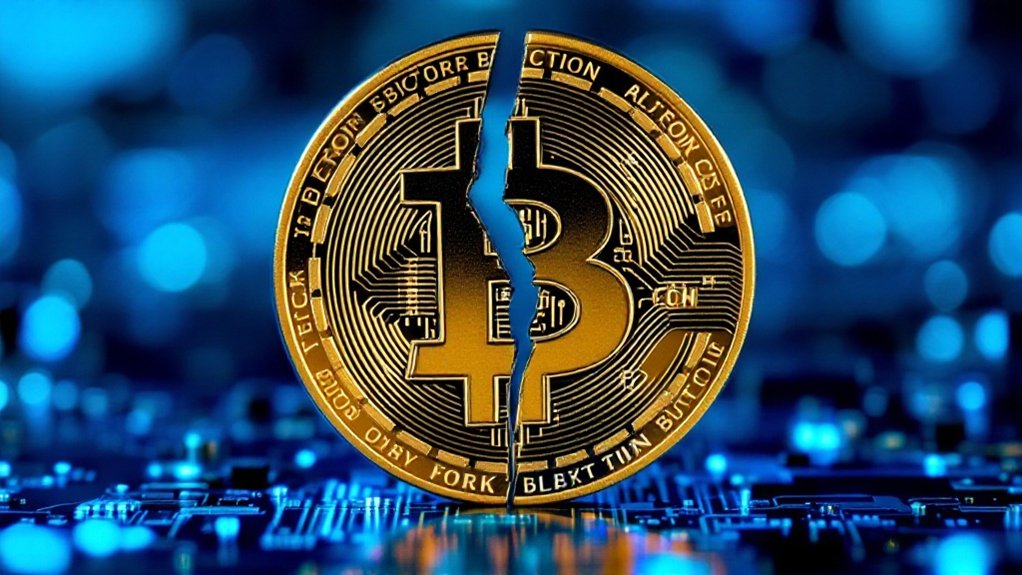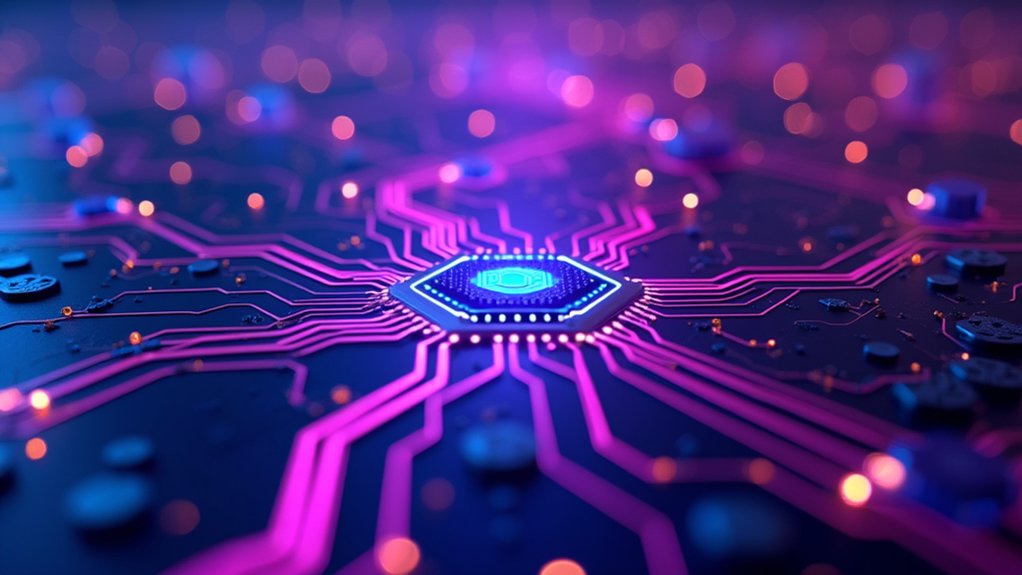ICP (Internet Computer Protocol) is a blockchain innovation that extends the internet with decentralized cloud computing capabilities. Launched in 2021 by DFINITY, it uses "canisters" to host applications and smart contracts that execute at web speed. The network operates across independent data centers, supporting multiple programming languages including Motoko and Rust. ICP tokens power the ecosystem, enabling computation, governance participation, and stake-based voting through the Network Nervous System. This comprehensive architecture represents a fundamental reimagining of internet infrastructure.

The Internet Computer Protocol (ICP) represents a groundbreaking blockchain technology designed to transform how the internet functions at its core. Developed by the DFINITY Foundation in 2016 and launched in May 2021, ICP aims to extend the public internet by creating a decentralized cloud computing platform that operates entirely on blockchain infrastructure. This protocol utilizes innovative Chain Key cryptography to achieve consensus and protect the network while supporting smart contracts that execute at web speed.
ICP's technical architecture distinguishes it from conventional blockchain systems through its use of "canisters," which function as computational units for hosting applications and services. These canisters communicate with each other through asynchronous messages allowing for concurrent execution without blocking operations. These canisters operate across a network of independent data centers worldwide, currently numbering 48 as of 2023. The protocol supports multiple programming languages, including Motoko (developed specifically for ICP), Rust, and Python, providing developers with flexibility when creating decentralized applications.
The native token of the Internet Computer Protocol serves multiple vital functions within the ecosystem. ICP tokens can be converted to "cycles," which power computational processes on the network. Token holders can participate in network governance by staking their assets and voting on proposals through the Network Nervous System (NNS), effectively making ICP a self-governing blockchain. At Genesis, the total supply of ICP tokens was established at 469,213,710. The protocol employs a deflationary mechanism where tokens used for fees, computing resources, and proposals are permanently burned.
ICP's dual-purpose token powers the network through cycles while enabling governance through staked participation in the NNS.
Unlike the traditional internet architecture dominated by centralized service providers and infrastructure, ICP operates on a fully decentralized model. The network achieves consensus through its Threshold Relay mechanism and employs subnet blockchains to guarantee scalability. This structure provides inherent resistance to censorship and outages while supporting parallel execution of smart contracts.
Current applications built on ICP include decentralized social media platforms, DeFi services, and Web3 development tools. The protocol has also begun integrating AI and machine learning capabilities, expanding its potential use cases. Though ICP reached the top 10 cryptocurrencies by market capitalization shortly after launch, it continues to face adoption challenges common to emerging technologies.
As the Internet Computer Protocol evolves toward its goal of supporting millions of nodes, it presents a vision for a reimagined internet—one where users interact with blockchain-based services as seamlessly as they do with traditional websites while benefiting from the security and sovereignty inherent to decentralized systems.
Frequently Asked Questions
How Does ICP Differ From Traditional Cloud Computing Platforms?
ICP differs from traditional cloud computing through its decentralized infrastructure that operates across independent data centers globally.
Unlike centralized platforms like AWS or Azure, ICP uses chain-key cryptography and tokenized incentives for node operators. Its Network Nervous System enables community governance through token-based voting on protocol changes.
Additionally, ICP's reverse gas model eliminates user fees, while its orthogonal persistence simplifies data management for developers compared to conventional cloud platforms.
What Are the Potential Risks of Investing in ICP?
Investing in ICP entails several substantial risks. Market volatility presents significant price fluctuation hazards, particularly evident after its initial launch.
Regulatory uncertainties could impact operations as governments globally develop cryptocurrency frameworks. Technical vulnerabilities may expose the protocol to security breaches or exploitation.
Additionally, ICP faces adoption challenges amid intense competition from established blockchain platforms. The project's success depends on overcoming scalability issues while maintaining network security through reliable node operators.
Can ICP Smart Contracts Interact With Other Blockchain Networks?
Yes, ICP smart contracts can interact with multiple blockchain networks through Chain Fusion technology.
The protocol offers direct integration with Bitcoin through its adapter, allowing canisters to read UTXOs and control Bitcoin accounts via threshold signing.
For Ethereum and other EVM chains, integration occurs through decentralized RPC and HTTPS outcalls.
This interoperability enables cross-chain transactions without bridges and supports management of tokens across different blockchains.
How Does ICP Address Scalability Issues Compared to Ethereum?
ICP addresses scalability through its subnet architecture, enabling horizontal scaling beyond Ethereum's limitations. It processes 11,500+ transactions per second versus Ethereum's 15-20 TPS, with 1-second finality compared to Ethereum's 14-minute wait times.
Chainkey cryptography facilitates rapid consensus, while asynchronous messaging between subnets prevents network congestion.
ICP's cost-efficiency is evident in its $5 per gigabyte storage cost and lower transaction fees, employing an energy-efficient consensus mechanism that outperforms Ethereum's model.
What Role Do Node Providers Play in the ICP Ecosystem?
Node providers form ICP's physical infrastructure by operating standardized hardware in globally distributed data centers. They maintain machines with 64 CPU cores, 512GiB RAM, and 30TB storage, organized into subnets hosting canister smart contracts.
Vetted by the Network Nervous System DAO, providers receive monthly rewards based on hardware specifications and geographic location. Their participation guarantees network decentralization, resilience, and sovereignty while supporting the blockchain's deterministic decentralization model.
References
- https://internetcomputer.org/docs/tutorials/developer-liftoff/level-0/ic-overview
- https://www.webopedia.com/crypto/learn/what-is-icp-crypto-internet-computer-protocol-explained/
- https://www.coinbase.com/learn/crypto-basics/what-is-internet-computer
- https://internetcomputer.org/what-is-the-ic
- https://coincentral.com/what-is-internet-computer-icp-crypto/
- https://learncrypto.com/popular-coins/internet-computer
- https://www.youtube.com/watch?v=12lgrTMXa9Q
- https://n8n.io/integrations/sticky-note/
- https://changelly.com/blog/what-is-internet-computer/
- https://www.okx.com/en-us/learn/what-is-internet-computer-understanding-the-decentralized-cloud-computing-protocol





